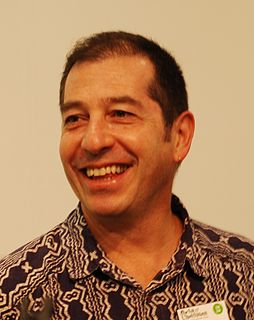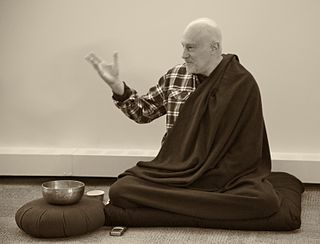A Quote by Goldie Hawn
What I’ve learned through my meditation is a sense of equanimity, a sense of all things being equal.
Quote Topics
Related Quotes
Now what is just and right is to be interpreted in the sense of 'what is equal'; and that which is right in the sense of being equal is to be considered with reference to the advantage of the state, and the common good of the citizens. And a citizen is one who shares in governing and being governed. He differs under different forms of government, but in the best state he is one who is able and willing to be governed and to govern with a view to the life of virtue.
It's one thing to assent to propositions like 'The way of things is ineffable', and quite another to internalise what it is being gestured at by such propositions, to get a sense or feel for mystery. For me, at least, it is in and through ways of engaging with nature that this sense is intimated. These ways include being in the garden.
To the scientist, nature is always and merely a 'phenomenon,' not in the sense of being defective in reality, but in the sense of being a spectacle presented to his intelligent observation; whereas the events of history are never mere phenomena, never mere spectacles for contemplation, but things which the historian looks, not at, but through, to discern the thought within them.
Can you remember how you felt when you were communicating through your artwork? Not just the sense of completion, but the sense of rightness- the sense that you had brought to life something that could live beyond your sphere of being, that held in it far more potential than you ever realized you were imbuing in the work?
If you have ever, sir, been through a breakup of a romantic relationship that involved great love, you will perhaps understand what I experienced. There is in such situations usually a moment of passion during which the unthinkable is said; this is followed by a sense of euphoria at finally being liberated; the world seems fresh as if seen for the first time then comes the inevitable period of doubt, the desperate and doomed backpedaling of regret; and only later, once emotions have receded, is one able to view with equanimity the journey through which one has passed.
There are six senses: five are outer; they tell you about the world. I say something about the light; without eyes you will not know light. Ears say something about the sound; without ears you will not know anything about the sound. There is a sixth sense, the inner sense, that shows and tells you something about yourself and the ultimate source of things. That sense has to be discovered. Meditation is nothing but the discovery of the inner sense.



































